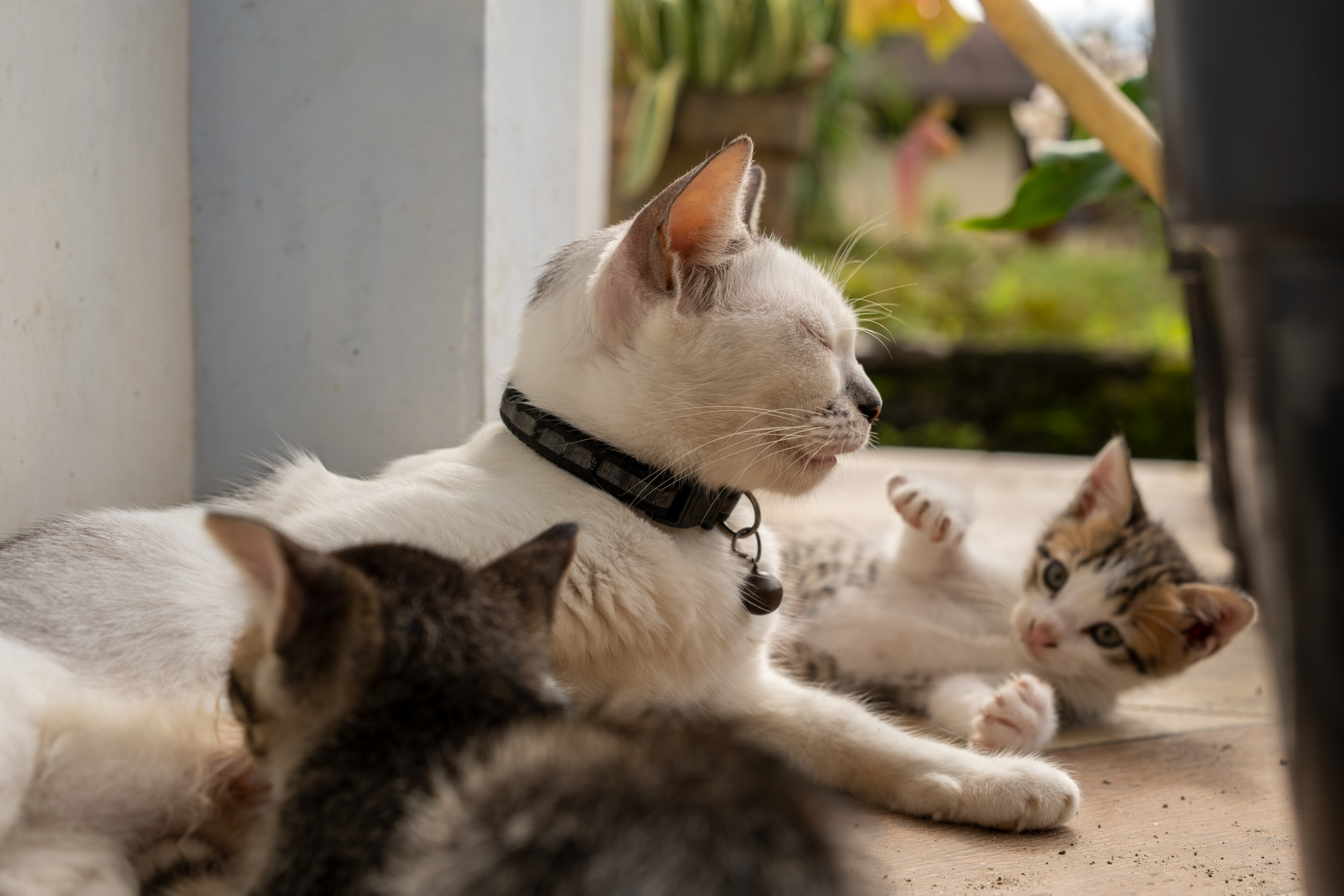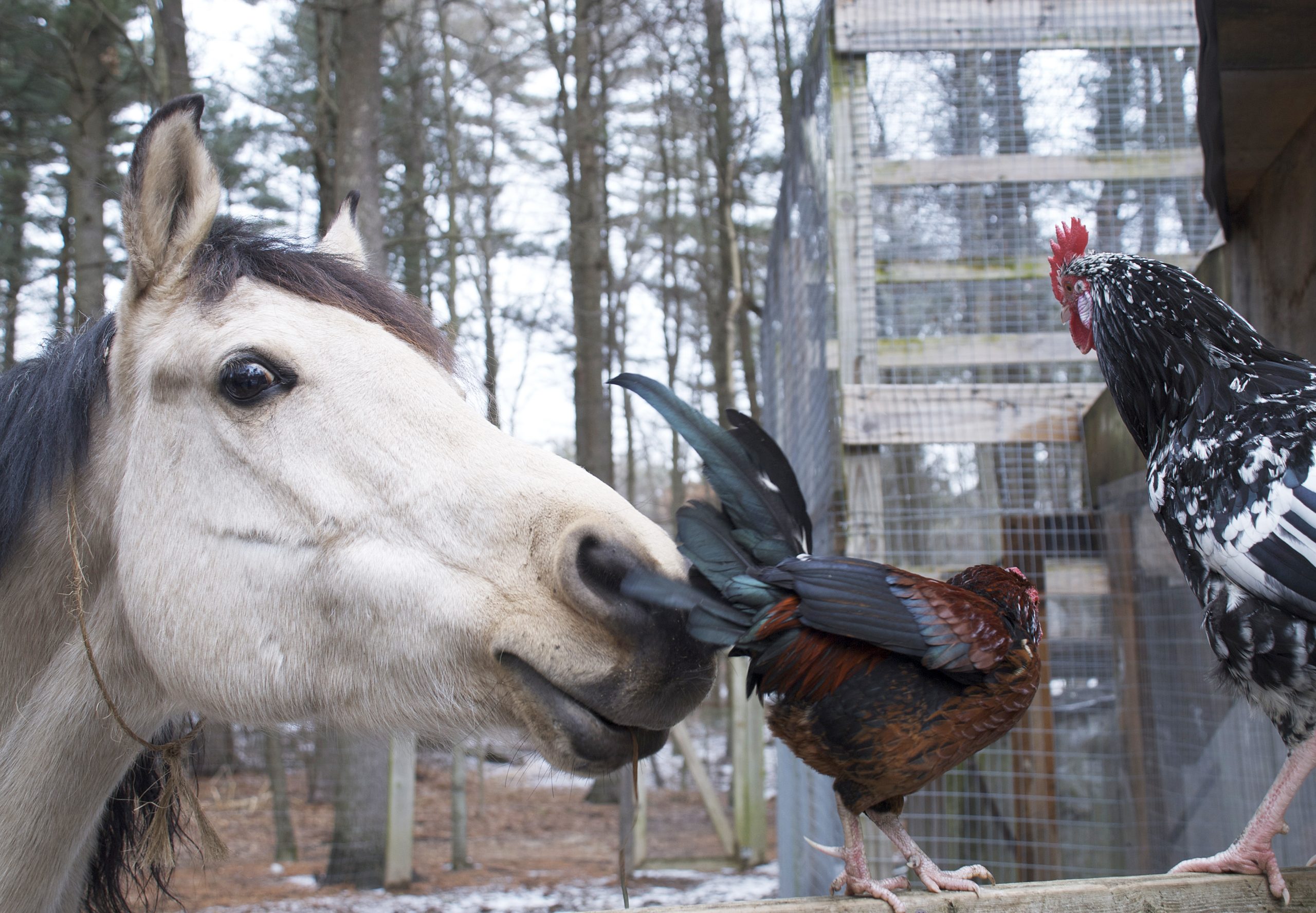
In a heartwarming TikTok video, a cat named Mama Skunk is handed a stranger’s kitten while feeding her babies—her reaction has internet users in tears.
The viral video, shared by @emookitkats in August, shows the black and white cat feeding her lookalike babies when, out of nowhere, her owner hands her a small orange kitten that is clearly not one of hers.
“What do you think about this one? She doesn’t look like one of yours. Can she be part of yours?” the poster asks her.
Immediately, Mama Skunk takes the little kitten under her care, grooming him and feeding him like one of hers, despite their different DNA.
“Adding Mama Skunk to the wall of super cat mom’s with Harriette, Moggy, Boggle, and all the other amazing cat mom’s I’ve had. Skunk is now a step-mom! One big happy family,” the caption says.
Dr. Carly Fox, senior veterinarian in the Schwarzman Animal Medical Center’s emergency and critical care service, told Newsweek that it is not uncommon for new moms to accept an extra baby, in fact, there is even a term for it called alloparenting.
“There could be several reasons why this occurs, mostly maternal instinct. Caring for newborns is often hormonally based, so it’s likely that this plays a strong role in this instinct,” she said.
“Having an extra kitten has also been shown to improve the survival of the other kittens in the litter by diluting risk. The rooting/mewing of a neonatal kittens is also a strong stimulus for a new mom, contributing to an increased acceptance rate.”
According to Dr. Liza Cahn, veterinarian at Embrace Pet Insurance, while cats are able to identify their biological kittens, primarily via smell, their hormone-related maternal instincts will still often lead them to care for orphan kittens too.
She told Newsweek: “As long as mom is willing, there are enough resources to go around, and the cats involved are healthy, fostering is not harmful to the mom, orphan kitten, or the rest of the litter. The main risks include strain on the mother’s body or that the orphan will be rejected and/or spread disease to the litter.
“Significant benefits to the orphan kitten include obtaining appropriate nutrition, including colostrum (early milk rich in antibodies critical for the immune system), as well as warmth, comfort, stress reduction, social modeling, and stimulation to eliminate. If a mother cat has lost her own litter, raising orphan kittens can also benefit her by satisfying her maternal instincts.“
Before introducing the kitten to the mom, it’s important that you warm them up, Dr. Peter Rakestraw, veterinarian at TelaVets.com, told Newsweek, as chilled kittens can’t digest milk. Then rub it gently with the mom’s bedding so it smells like the nest, and place it near her while she’s calm and nursing.
“Most moms will sniff, lick, and just get on with caring for the new baby right away,” he said. “If the queen growls, hisses, or tries to push the kitten away, take the kitten out and try again later or switch to bottle feeding. And if you’re adding more than one kitten, do it slowly to make sure she can keep up.
“This kind of cross mothering is actually a huge part of why orphaned kittens can survive. It’s really heartwarming to see how willing most cat moms are to step in and help.”

getty images
The video quickly went viral on social media and it has so far received over 3.3 million views and 585,300 likes.
One user, Holly Carter, commented: “Mama Skunk: I’m keeping this, I don’t have one this color.”
Alexis added: “I love cats so much because imagine if you just gave birth to, let’s say twins, and someone just drops a third random baby off with you and is like oh this is yours now….and cats are just like oh cool, I got this!”
Newsweek reached out to @emookitkats for comment via TikTok comments. We could not verify the details of the case.
Do you have funny and adorable videos or pictures of your pet you want to share? Send them to life@newsweek.com with some details about your best friend and they could appear in our Pet of the Week lineup.




